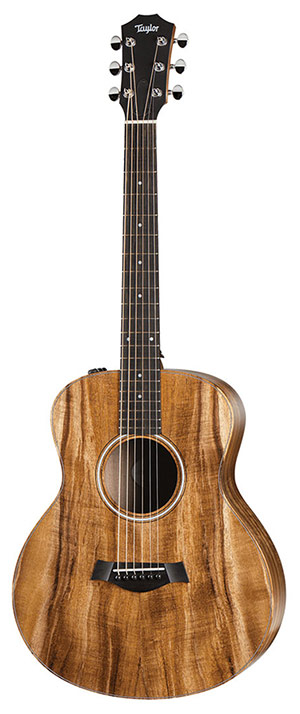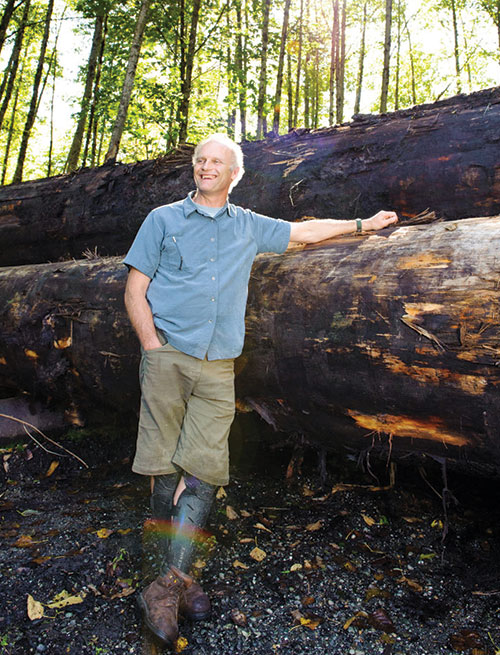Story by Paul Wood
 Maui has places where a person can get drenched and sunburned at the same time, and this is one of them — steeply pitched pastureland high above the habitation line on the wet side of Haleakalā. The wind is blasting across the slopes, shooting buckets of thick mist with each surge. We’re at the top edge of an eight-acre grove of koa trees, and deep in the grove chainsaws are whining and treetops are wobbling and falling. Backhoes haul trunks out of the grove, and a Kubota track-loader is lifting three-foot-diameter koa hunks and placing them in heavy-duty flatbeds, which sway under the sudden weight. The grove stands on land owned by Haleakala Ranch, and ranch land manager Jordan Jokiel watches the harvest approvingly.
Maui has places where a person can get drenched and sunburned at the same time, and this is one of them — steeply pitched pastureland high above the habitation line on the wet side of Haleakalā. The wind is blasting across the slopes, shooting buckets of thick mist with each surge. We’re at the top edge of an eight-acre grove of koa trees, and deep in the grove chainsaws are whining and treetops are wobbling and falling. Backhoes haul trunks out of the grove, and a Kubota track-loader is lifting three-foot-diameter koa hunks and placing them in heavy-duty flatbeds, which sway under the sudden weight. The grove stands on land owned by Haleakala Ranch, and ranch land manager Jordan Jokiel watches the harvest approvingly.
The workers are culling, not clear-cutting, the grove. Still, it seems ironic. In the cause of reforestation, the ranch is felling trees.
Koa is the parent, or foundational, species of the primordial Hawaiian forest, most of which is now gone. For environmental reasons, the ranch is determined to protect its “heritage lands” — undamaged forests — and to reforest portions of its pastureland. This work (fencing, planting, protecting) is expensive. If the ranch could market some select koa timbers, it could convert the profits into woodlands. Trouble is, this morning’s noisy grove, planted as an experiment thirty years ago, grew low and bushy. The ranch considered this thirty-five-acre experiment to be pleasing, but not valuable.

Then two entrepreneurs came calling — Bob Taylor, cofounder and president of Taylor Guitars, and his longtime associate Steve McMinn, founder of Pacific Rim Tonewoods. Taylor started making acoustic guitars forty-two years ago at the rate of ten per year. Last year his factory, in El Cajon, California, produced 165,000 instruments, 5,000 of them with koa. The expertise of McMinn’s Washington State company is finding and milling woods that possess the acoustical qualities and beauty suited to the crafting of fine stringed instruments.
Both men believe that the essential counterpart to harvesting trees is planting them. “Steve and I are looking ahead a century,” says Taylor. Age sixty-two and bespectacled, he’s not what you’d call a lumberjack in appearance, but he has a bounce-on-your-toes enthusiasm. The ranch, he says, previously considered the groves to be “valueless. Then I came in and said we can turn this into real money for everybody.” The reason: you don’t need long timbers to make a guitar. He says, “Hawai‘i could be a breadbasket of good timbers, not just koa. You have open land, water, sunlight.” He and McMinn share a very interactive approach to conservation of forest resources. Instead of the “don’t touch it” model, says Taylor, “No, let’s touch it gently and use the money for reforestation.”





Nice story, Paul!